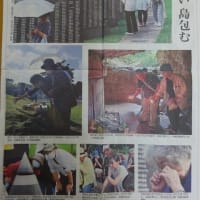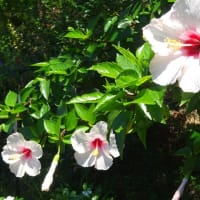
9月IUCNハワイ会議で集めたIUCN勧告と決議の履行を求める署名をオンラインで集めています。
署名サイトはこちらです。
署名サイトは英語のみの表記になっていますが、下記和訳をつけましたので、お読みください。
ご協力どうぞよろしくお願い致します。
Save Japan’s Richest Biodiversity and the Dugong! Call for Implementation of IUCN Recommendations and Resolution
By: Save the Dugong Campaign Center
Target: US President Barack Obama & Japanese Prime Minister Shinzo Abe
日本で最も豊な生物多様性とジュゴンを護ろう!
IUCN(国際自然保護連合)の勧告と決議の履行を求めます
呼びかけ:ジュゴン保護キャンペーンセンター
要請先:米国大統領バラクオバマ、日本国首相安倍晋三
For the last 20 years, the Japanese and U.S. governments have been pushing a controversial plan to construct a large U.S. military air base in the area of Henoko and Oura Bay, Okinawa, Japan. In July 2014, the Japanese government began drilling surveys and preparatory works based upon the conclusion of its Environmental Impact Assessment (EIA) that the base will have “no impact” on the environment. The Japanese high court then intervened, and all the survey and construction works have been halted since March 2016 though the Japanese government is trying to resume them.
この20年間、日本政府と米国政府は日本の沖縄県で辺野古および大浦湾地域に大規模な米軍の航空基地を建設するという計画を多くの反対を押し切って推し進めて来ました。2014年7月、日本政府は「基地建設は環境に何ら影響を与えない」という環境影響評価書の結論を根拠に、ボーリング調査と準備工事を開始しました。その後2016年3月に日本の高等裁判所の仲裁によりすべての調査及び工事は停止されましたが、日本政府は工事の再開を目指しています。
It is injudicious that the governments have chosen the area as the site for the base construction. The area is one of the richest biodiversity areas in Japan. It is home to over 5,300 marine species including some 260 endangered species. The dugong (Dugong dugon), an endangered marine mammal, Okinawa’s cultural icon, and Japan’s Natural Monument, makes this area the species’ northernmost habitat.
日本政府がこの地域を基地建設予定地に選んだのは全く分別の無い選択です。この地域は日本でも生物多様性が最も豊かな地域の一つに数えられるような場所です。そこには5,300種を超える海洋生物種が生息し、その中には絶滅危惧種が260種も含まれます。絶滅危惧種の海洋哺乳類であり、沖縄文化におけるアイコンであり、また日本の天然記念物でもあるジュゴンも生息しており、この地域はその分布域の北限となっています。
It is inconceivable that the Japanese and U.S. governments insist upon the validity of the EIA’s “no impact” conclusion. The construction of the base involves dumping of 21 million cubic meters of sand and rock (that is 3.5 million truck loads of sand and rock!) into the water. It will be nothing but an environmental disaster. This EIA is an affront to IUCN’s past Recommendation 2.72 and 3.114 and Resolution 4.022, which have called upon the both governments to conduct proper EIA for the construction of the base and to draw conservation plans for the dugong.
日本政府と米国政府が環境影響評価書の「環境に影響は無い」との結論は有効だと主張するのは全く不可解です。基地建設には、2千100万立法メートルの土砂(ダンプカー350万台分に相当!)を海に投げ入れる必要があります。まさに環境へ甚大な被害をもたらす事業そのものに他ならないものでしょう。にもかかわらずそのような結論付けをする環境影響評価書は、両国政府に対して基地建設に伴う環境影響評価を適切に実施し、ジュゴンの保護計画を策定することを求めたIUCNの過去の勧告2.72や3.114および決議4.022を全く蔑ろにするものです。
We the undersigned call upon the Japanese and U.S. governments to implement IUCN Recommendations 2.72 and 3.114 and Resolution 4.022 to their fullest extent.
ここに署名した私たちは、日本政府と米国政府にIUCN勧告2.72、3.114および決議4.022についてその全内容を細大漏らさず完全に履行することを要求します。
We also call upon the governments to implement IUCN’s newly adopted Recommendation “Strengthening pathway management of alien species in island ecosystems” to its fullest extent.
私たちはまた、両国政府にIUCNが新たに採択した勧告「島嶼生態系への外来種の進入経路管理の強化」についてその全内容を細大漏らさず完全に履行することを要求します。
IUCN(国際自然保護連合)ホームページ
ジュゴン保護キャンペーンセンター ホームページ
ジュゴン保護キャンペーンセンター英語HP




















※コメント投稿者のブログIDはブログ作成者のみに通知されます